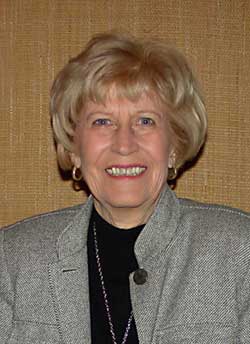It's bad enough mulberry and olive trees are raining misery upon Las Vegas in the form of sneeze-inducing pollen, but ozone levels are adding to the misery. While Environmental Protection Administrator Stephen Johnson announced that the EPA has decided to tighten the eight-hour standard for smog-forming ozone, the Earthjustice group is saying it is too little too late.

In the meantime, Nevada air quality officials are crying "foul," claiming the new EPA edict is designed for cities in the East and is being unfairly applied to cities and rural areas in the West. They also note that pollution from outside Nevada that is transported into the state by air currents can be enough to trigger a violation, even in the rural areas. For instance, think of the many California fires resulting in smoke drifting into Nevada. If a new lower standard is put into effect, Nevada's potential to pass air quality requirements will be severely jeopardized.
Higher diesel prices hurt Nevada truckers in more ways than one. There is less demand for overland shipping which results in depressed prices. When combined with the jack-up of the price of diesel, independent truckers are tempted to sell their trucks and go into a new line of business. Others are parking their rigs and refusing to drive unless they are able to get a rate worth driving for.
While the majority of Nevada residents are worried about the high cost of gasoline, drivers are learning to plan their daily jaunts to make use of the shortest route. With only two months of the fiscal year remaining, the state of Nevada has bigger problems: it has spent most of its money allocated for fuel. Only a little over $1 million of its $10 million total budget for gasoline and diesel for the fiscal year remains.
What to do? The biggest user is the Nevada Department of Transportation whose fuel costs are expected to reach $6.3 million. Of that total, $4.3 million is for diesel to run trucks, graders, snowplows and large maintenance equipment.
The second largest user of fuel is the Nevada Highway Patrol. Keith Wells, administrator of the motor pool has a plan: he's moving money out of his reserves to help cover expenses and he is strongly encouraging state workers to carpool to work and to meetings. He also is swinging into buying some natural gas and hybrid vehicles.
Nevada transportation consultant Tom Skancke has some cogent comments on John McCain's proposal calling for the suspension of the 18.4 cent federal gasoline tax and 24.4 cent diesel tax from Memorial Day to Labor Day. He considers the proposal "bad policy."
He explained that preliminary numbers worked out by opponents of the proposal said the average American might save $28 over the three month period and that would all depend on the oil companies. Skancke goes on to explain that oil companies must prepay the fuel tax and then recoup their money by adding the charge at the pump. "What do you think is going to happen?" he asks. "The consumer would never see the savings." He added, "The price at the pump would would never go down and when the fuel tax was reinstated at the end of the summer, the oil companies would just tack on a new 18.4 cents a gallon."
According to Senator Harry Reid (D-Nev.), any cut in the gasoline tax should be covered by ending tax breaks for big oil companies.
Another thing to think about: Nevada Revised Statute 365.185, section 2, states that if the Federal fuel tax is reduced or discontinued, then "the amount of the tax so imposed by this State must be equal to the amount by which the federal tax is reduced." That means if McCain's plan were to be enacted, the price of gasoline for Nevada residents wouldn't change.
Originally published in the June 2008 issue of the O&A Marketing News.
Copyright 2008 by KAL Publications Inc.
Serving the 13 Western States, the World's Largest Gasoline, Oil, Fuel, TBA and Automotive Service Market